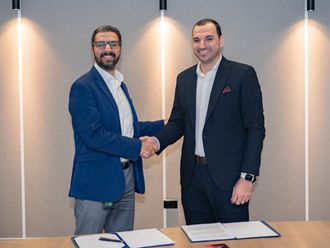Dubai: Using social media, on the surface, is a simple concept. But, organizations should have selective strategies that are oriented toward their nature, according to social media experts.
Different strategies “are suited to different organisations,” said Balqees Zainal, social media manager at Du.
Different organisations garner various interactions from consumers; some attract mainly questions or complaints, while others attract more engaging conversations from customers.
A case in point: managing a coffee shop’s Twitter profile, for instance, involves creating conversations. This starts with looking for tweets mentioning the brand or key words relevant to it, and then joining the conversation, according to Meghna Kothari, director at McCollins Media, a social media agency.
“If someone tweets asking for a… coffee, we say ‘hey, try this mocha’,” Kothari said.
Meanwhile, managing a government organisation’s Twitter profile predominantly involves replying to complaints and queries, according to Kothari.
Companies’ social media profiles are managed either in-house or through agencies. Those that do so in-house assign the work either to a dedicated person, or it is spread across their communications team, according to Kothari.
“If they’re serious about social media, they will have a dedicated person to manage all the platforms,” Kothari added.
At agencies, meanwhile, the choice to have a dedicated person to manage online channels depends on the traffic patterns.
Government organisations, for instance, attract traffic to their social media profiles almost all day, so these need to be constantly updated by a dedicated person. But for a coffee shop, there are certain times, usually mornings, when updates are done, according to Kothari.
Users behave differently on different social media platforms. When content is delivered, it moves across the different platforms in varying pulses. So, “companies need to create different strategies for each platform, while ensuring these are closely interlinked,” according to Alex De Smet, digital media planner at Initiative Media, who manages KFC’s social media profiles for the Middle East and North Africa.
In terms of strategies, a number of regional companies are delivering ‘unique experiences’ to their online customers.
“We don’t want to make [social media] dry channels. So, we don’t just use these to promote our products and services, but also to engage with our customers about topics that are relevant to Du,” Zainal said.
“We post about the latest technologies. We also run competitions to win tickets to events we sponsor through Du Live,” she said.
Meanwhile, KFC aim to give their online customers “something out of the ordinary.” With every KFC activity or campaign, customers are given the opportunity to participate in competitions on their Facebook page, which has over a million ‘likes’. Aside from engaging with their customers with exclusive offers, they use the platform to respond to complaints.
“People are sceptical about filling out complaint forms on a brand’s website,” De Smet said.
Additionally, considering Dubai’s multicultural environment, the need to deliver content in multiple languages is vital to reaching customers.
“There is a protocol to post in English and Arabic, but does that mean you’re reaching them?” Zainal said.
While there are distinct strategies or techniques, depending on the type of organization, there are those that are uniform across all organizations, such as being honest with consumers and ‘listening’ to them, according to experts.
“We consistently monitor our Facebook page to avoid missing a conversation,” De Smet said.
Sarah Algethami is a trainee at Gulf News.











